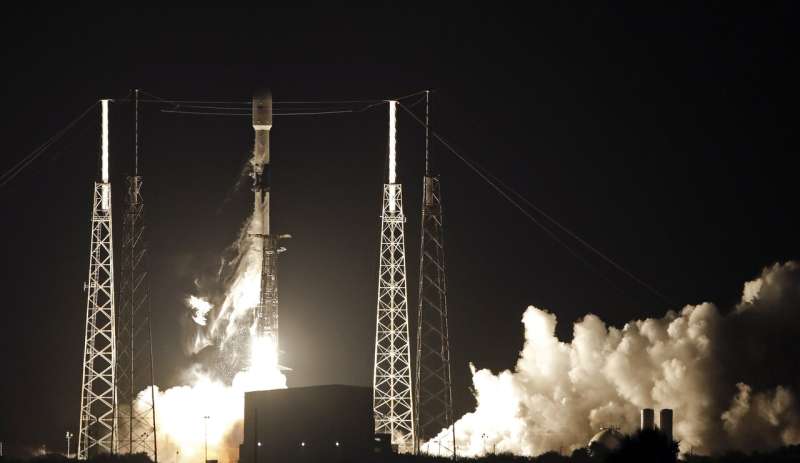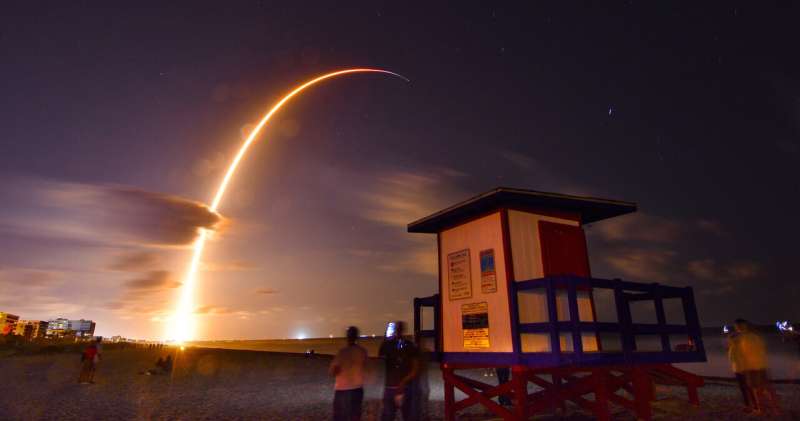In this May 23, 2019, file photo, a Falcon 9 SpaceX rocket, with a payload of 60 satellites for SpaceX's Starlink broadband network, lifts off from Space Launch Complex 40 at the Cape Canaveral Air Force Station in Cape Canaveral, Fla. It's a 21st century space race: Amazon, SpaceX and others competing to get into orbit and provide internet to the earth's most remote places. (AP Photo/John Raoux, File)
Tech giants and billionaires hope a new, cheaper crop of internet-beaming satellites and balloons can get internet to those who don't have it.
But they face technical and financial challenges. Previous efforts to zoom fleets of satellites into space ended in failure. And the internet service that does result may still be too expensive to help the people who can't get online.
More than a dozen companies have asked U.S. regulators for permission to operate constellations of satellites that provide internet service. Not all are aimed at connecting consumers, but some have grand and global ambitions.
Amazon CEO Jeff Bezos says the goal is broadband service across the globe. With half the world's population—more than 3 billion people—not using the internet, it's a huge potential market.
In this May 23, 2019, file photo, a Falcon 9 SpaceX rocket, with a payload of 60 satellites for SpaceX's Starlink broadband network, lifts off from Space Launch Complex 40 at Florida's Cape Canaveral Air Force Station, seen from Cocoa Beach, Fla. It's a 21st century space race: Amazon, SpaceX and others competing to get into orbit and provide internet to the earth's most remote places. (Malcolm Denemark/Florida Today via AP, File)
© 2019 The Associated Press. All rights reserved.

























